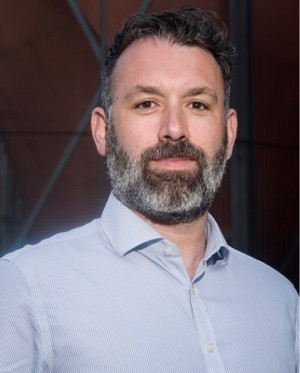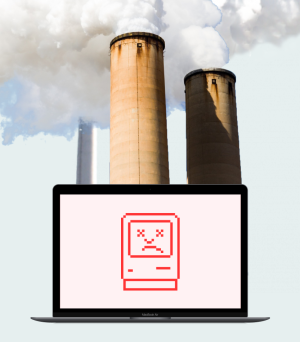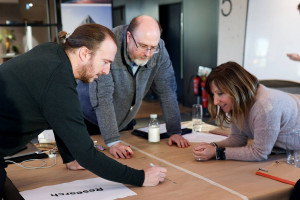In Conversation with Matt Allen
Getting practical about self belief and change at scale

When Matt Allen co-founded Pivot Power, the UK battery storage and EV charging infrastructure start-up, he did not imagine that becoming an integral part of the UK’s low carbon infrastructure would happen so quickly. Having recently been acquired by EDF Renewables, Matt shares his lessons on self-belief, embracing others on the same journey and making an impact at scale.
What is the change you’re most proud of being a part of and why?
One of the things that I am proud of is that, as a Northern Californian, we have a mindset of, or dare I say a bit of a chip on our shoulder, “tell me why I can not do it.” Having worked in different parts of the world, it was interesting to see that mentality as a differentiator. In today’s world, we often create an environment where people think they can't do certain things. But when it comes to the climate crisis, we can all sit at the pub and talk about the topic and how we need to deal with it - but the reality is we need to act now!! Climate change is too cute…it’s a climate crisis. I love being part of that shift.
What advice would you give to others trying to change things?
A real key to success is to embrace your network. I love introducing people to one another and seeing things come together. The only way I think you can truly “activate” your network is by putting yourself out there and talking to them about your goals and trying to help them achieve theirs. You can only earn the right to activate your network through giving back. Once I started doing that, it had this domino effect of people interested in introducing me to other people. It blew me away, how powerful the collective is when we call on each other.
Another thing I realised is there is a lot of value in being able to simplify the narrative of something which might be complex. Often the people you need to get on board, like customers, clients, investors and so on, don’t know the ins and outs of the technology or the market you personally live and breathe, but if you recognise that they don’t speak the same language that you speak, you can get them comfortable and that’s dangerous, in a good way!
Finally, my team and I never went into this to make money; it was about creating an amazing company and delivering a positive impact. It’s important to understand that to be able to deliver the best products and services, you need to create a team that is supported, fulfilled and bought into the overall plan.
Thinking about your area of practice over the next decade, what must we learn to leave behind? And what should we pay more attention to?
Covid and the overall experience of lockdown has given us, collectively, an opportunity to take a step back to reflect – which has led to netzero commitments, the ban on the new sale of petrol cars by 2030 and a focus on cleaner air and a broader improvement of our environment. We’ve realised that it’s nice to not have the continuous noise of combustion engine vehicles surrounding us at all times, and in addition to seeing photographs of pollution-free communities, we want to live in these types of societies.
In the shift to a low carbon economy, I think it’s important to embrace your “competition.” I’d categorically say that having competition doesn’t necessarily mean that your job is any harder. Just look at Pivot Power – there was so much excitement about our proposition, but the challenge was where the industry was so new, we were perceived to be a big risk. Battery storage hadn’t been deployed at scale and electric vehicles weren’t really a big thing yet. But when you look at it, everything is a risk and having other organisations working on similar offerings can actually help you address these risks when you are looking to innovate and gain support. It’s time to champion the industry and see other’s successes as an opportunity to up your game.
Is there a particular reference (a book, a poem, a person, etc) that you find particularly helpful in your work?
Jeremy Leggett of Solarcentury and Julia Davenport of Good Energy, both founders of their respective organisations, are both heroes of mine who have shaped my thinking enormously. Their purpose and conviction never wavered during their journey, even during the challenging times, which is both admirable and a foundation for their success. I also like anything from Simon Sinek, his stuff is simple, thought provoking and gets to the heart of what being a great leader is all about.
What’s one last thing you’d like others to take away?
Don’t be afraid to fail, but at the same time do prepare yourself to not succeed. The important thing is to believe that what you’re doing is right and stay true to self.



